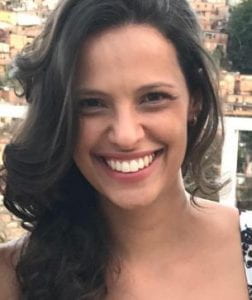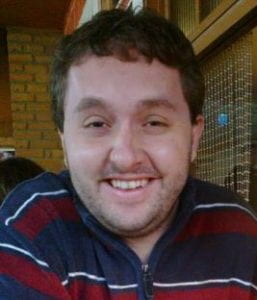Brazil
INFORMAS in Brazil is coordinated by Dr Ana Paula Bortoletto Martins (IDEC – Brazilian Institute for Consumers Defense). We are conducting six modules: food composition, food labelling, food promotion, food prices, private sector and public sector policies (food EPI). The first module is being conducted by Dr Ana Clara Duran, researcher from the Center for Epidemiological Studies in Health and Nutrition/University of São Paulo (Nupens/USP). The food labelling module was included in a research project coordinated by IDEC in collaboration with Nupens/USP. The food promotion module is coordinated by IDEC and is being conducted together with Dr Rafael Claro and Dr Paula Horta’s team from the Federal University of Minas Gerais (UFMG). Food prices module is being conducted by Dr Rafael Claro from UFMG. The private sector module is being conducted by Dr. Aline Mariath, who has just completed her PhD at the School of Public Health at USP (FSP/USP). And the food EPI module is being conducted by Dr Elisabetta Recine from the University of Brasília (UnB), Dr Andréa Sugai from the Federal University of Goiás (UFG), Dr Ana Carolina Feldenheimer from the University of the State of Rio de Janeiro (UERJ), and Dr Paulo Castro from the Federal University of Rio de Janeiro (UFRJ).
Food composition and food labelling data collection and data entry conducted together in supermarkets of São Paulo and Salvador are now completed. We published three scientific papers regarding trans fat, health and nutrition claims, and nutrient profile modules according to the INFORMAS classification system. A paper about the content of sodium in ultra-processed foods (UPP) and voluntary agreements is in press; a paper about whole grains, one regarding promotional strategies on labels, and two papers about sweeteners in UPP are under review; and a paper regarding the use of ingredients in UPP is being developed.
The first round of food promotion data collection ended in April 2018, based on the recording during eight days of the three most popular channels of the Brazilian open TV (432 hours of recording). Based on this dataset, we developed five papers: the description of all the food ads based on the INFORMAS classification system (published), food ads targeted at children (in press), persuasive strategies in food ads (published), nutrient profile of the foods and beverages advertised on Brazilian TV (published), and persuasive strategies in TV commercials and social media (under review). In April 2019, we ran the second round of the data collection of TV food and beverage advertisements considering free-to-air and pay-per-view channels, and the third round was in September 2019 for open TV only. In June 2020, the fourth round was carried out for free-to-air and pay-per-view channels. The data of the second and third rounds are being evaluated and of the final round is being entered. We plan to develop a longitudinal analysis of the four rounds of data collection and a content analysis of food advertising on Brazilian TV during the covid-19 pandemic.
The food prices data collection and data entry are finished. We published two scientific papers in 2019 and are redoing the modelling analysis for healthy and unhealthy food prices considering the covid-19 pandemic.
Research on the private sector module is being conducted by Aline Mariath. BIA Obesity was started in February 2017 and preliminary results on restaurants and supermarkets were presented in poster format in Guadalajara, Mexico, in November 2018 (SLAN). Due to lack of personnel and Aline’s research on corporate political activity for her PhD thesis, BIA Obesity had to be suspended. She has just completed her PhD and the resulting papers are expected to start being published in the near future. We also plan to resume data collection for BIA Obesity.
The food EPI module was being conducted by a researcher from the UK, who finished the first draft about food and nutrition security policies in 2016, and the other steps proposed in the protocol were not carried out. In 2018, the conduct of this module changed, and now the Brazilian researchers from UnB, UFG, UERJ and UFRJ are in charge. The project has funding from CNPq. The team finished the application of the questionnaire to compare national actions and best practices. The information from this data collection is being organized to start four online validation workshops, that will happen in May and June 2021.













 Gabriela L. da Cruz
Gabriela L. da Cruz